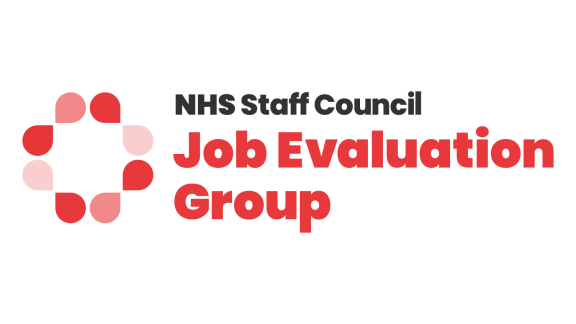As part of the deal, staff will receive two one-off non-consolidated payments on top of their 2022/23 salary. This will be in addition to the £1400 uplift to pay points implemented earlier in the year (topped up to 4 per cent for the top of band 6 and all pay points in band 7). The two payments consist of a 2 per cent non-consolidated award, and a one-off ‘NHS backlog bonus’ to recognise the sustained pressure facing the NHS following the COVID-19 pandemic. The NHS backlog bonus is worth an additional 4 per cent of the Agenda for Change pay bill – with additional payments ranging between £1,250 and £1,600 for each of the pay bands.
Find FAQs on payment information, eligibility and implementation.
Payment questions:
1. Will these payments be pro-rated if an individual joined the NHS part-way through 2022/23? - NEW added 19 June 2023
These payments will not be pro-rated based on length of service during 2022/23. For example, an eligible member of staff that joined part way through the 2022/23 financial year, and remained eligible on 31 March 2023, would be entitled to the full value of the payments. Pro-rating will only apply in respect of part-time contractual hours.
2. How will the payments be pro-rated for part time staff?
The same eligibility criteria will apply to part-time staff as full-time staff in their pay band (see other FAQs) however, these non-consolidated payments will be pro-rated in accordance with their contracted hours as of 31 March 2023.
3. Will these payments be taxed?
Yes. These payments will be subject to tax deductions and national insurance deductions at source.
4. Which tax year will these payments be attributable to? - NEW added 19 June 2023
The non-consolidated payments will be treated as income for the 2023/24 tax year, as this is when the payments will be made.
5. Will these payments affect benefits received by staff?
Benefits requirements will vary by individual and by household, and may be affected by a non-consolidated payment. Members of staff in receipt of benefits should contact their benefit provider. More information on state benefits can be found on the GOV.UK website.
6. Will these payments be pensionable?
No, these payments are not pensionable and staff will not pay pension contributions on them. As these payments are not pensionable, they have no impact on any aspect of pension contributions.
7. Will these non-consolidated payments impact on any enhancements?
These non-consolidated payments will be based on basic pay by pay point, as opposed to individual salaries. Therefore, there will be no adjustment to these payments in respect of any enhancements, for example unsocial hours payments.
8. How will the non-consolidated payments interact with pay arrangements for apprentices/trainees?
For those apprentices/trainees who receive a proportion of an Agenda for Change pay band (e.g. as per Annex 21), the appropriate uplift will be applied to the pay band. For example, trainees earning 75 per cent of Band 8a will receive 75 per cent of the Band 8a NHS Backlog Bonus as well as the additional non-consolidated award worth 2 per cent of their individual basic salary.
For those apprentices/trainees who receive salaries that are not aligned to Agenda for Change pay bands, but retain all of the remaining provisions of Agenda for Change terms and conditions, local employers should determine the appropriate uplift in partnership with local trade unions using the principles of the offer i.e. a two per cent lump sum and the most appropriate level of backlog bonus.
Eligibility:
9. Who is eligible for the non-consolidated payments? - Further information added 19 June 2023
These non-consolidated payments will cover staff directly employed by NHS organisations (for example, permanent and fixed term contracts) as set out in Annex 1 of the handbook on Agenda for Change terms on 31 March 2023.
Staff who were not employed on 31 March 2023 are ineligible to receive payment, either in full or in part. This is regardless of whether they have retired and returned on 1 April 2023 or later, or whether they worked a proportion of the 2022/23 financial year.
10. Will bank staff and those outside direct employment receive the non-consolidated payments? Updated 07 July 2023
These non-consolidated payments cover staff directly employed by NHS organisations (e.g. staff on permanent and fixed term contracts) as set out in Annex 1 of the handbook on Agenda for Change terms as of 31 March 2023.
The eligibility of bank staff for the non-consolidated payments is dependent on the terms of the contract that they are employed on.
Many bank staff will be directly employed on the Agenda for Change contract (for example, permanent or fixed term contracts) by an NHS trust. Staff who undertake additional shifts through an NHS bank will already be eligible for the non-consolidated payments as part of their direct employment on Agenda for Change terms.
Staff who work exclusively on an NHS bank are employed on locally managed contracts developed by the employing organisation, where the contract terms vary from organisation to organisation. In these circumstances it will be for individual employers to determine the pay and conditions for those members of staff; some of these locally managed contracts may reflect Agenda for Change terms.
Employers will need to review their local contractual arrangements for bank workers to determine eligibility for these non-consolidated payments, and to ensure that any contractual entitlement to the payments is honoured.
11. What happens if a member of staff has moved employers in the 2022/23 year?
Where staff are directly employed by an NHS organisation (for example permanent and fixed term contracts) as set out in Annex 1 of the handbook on Agenda for Change terms as of 31 March 2023, they will be eligible for both the non-consolidated payments. The new/current Annex 1 employer (as at 31 March 2023) will be responsible for making the payments.
12. What happens if a member of staff changes employer after 31 March 2023 – who is responsible for the non-consolidated payments?
Where staff are directly employed by an NHS organisation (e.g., permanent and fixed term contracts) as set out in Annex 1 of the handbook on Agenda for Change terms as of 31 March 2023, they will be eligible for both the non-consolidated payments. The NHS organisation who employed the member of staff as of 31 March 2023 will be responsible for making the payment.
13. What if a member of staff has changed their pay banding in the 2022/23 year?
These non-consolidated payments will be based on the pay point as of 31 March 2023. This applies to staff directly employed by NHS organisations (e.g., permanent and fixed term contracts) as set out in Annex 1 of the handbook on Agenda for Change terms, including those who are temporarily promoted and on secondment to an NHS organisation as set out in Annex 1 of the handbook.
14. What happens if a member of staff leaves the NHS after 31 March 2023? - NEW added 19 June 2023
Where a member of staff was directly employed by an NHS organisation (as set out in Annex 1 of the Agenda for Change handbook) on 31 March 2023 and has subsequently left NHS employment, they will still be eligible for the non-consolidated payments and will not be required to pay these back (either in full or as a proportion). The organisation that employed them on 31 March 2023 will be responsible for making these payments in June 2023.
Staff in this situation should ensure that their former employer has their up-to-date bank details. Employers should follow their local processes to ensure these payments can be made.
15. What payments will staff who have been on parental/maternal/adoption leave receive? - Further information added 19 June 2023
Staff on maternity/parental/adoption leave remain employed and are therefore eligible to receive the non-consolidated payments. Regardless of whether the employee was on full, half, statutory, or nil pay on 31 March 2023, their payments will be based on their substantive pay point and contractual hours as at that date.
16. Will staff who have been on sick leave receive the non-consolidated payments? - Further information added 19 June 2023
Employers should ensure that staff on long-term sick leave, where appropriate, receive the non-consolidated payments. Regardless of whether the employee was on full, half, statutory or nil pay on 31 March 2023, their payments will be based on their substantive pay point and contractual hours as at that date.
17. Will recently retired staff receive the non-consolidated payments for their work in the 2022/23 year?
These non-consolidated payments apply to staff directly employed by an NHS organisation (e.g., permanent and fixed term contracts) as set out in Annex 1 of the handbook on Agenda for Change terms as of 31 March 2023. Any individual who has left NHS employment before that date is not eligible for these non-consolidated payments.
18. Will staff on a career break receive the non-consolidated payments?
This will be for local employers to determine on a case-by-case basis.
19. Will the non-consolidated payments include high cost area supplements (HCAS) payments?
These non-consolidated payments will be based on basic pay by pay point, as opposed to individual salaries. Therefore, there will be no adjustment to these payments in respect of HCAS.
20. Will the non-consolidated payments affect recruitment and retention payments (RRPs)?
These non-consolidated payments will be based on basic pay by pay point, as opposed to individual salaries. Therefore, there will be no adjustment to these payments in respect of RRPs.
21. What happens if a member of staff has been TUPE transferred to a private company providing NHS services?
These non-consolidated payments will only apply to staff directly employed by NHS organisations (e.g. staff on permanent and fixed term contracts) as set out in Annex 1 of the handbook on Agenda for Change terms as of 31 March 2023.
Where staff are TUPE transferred after 31 March 2023, they will be eligible to receive the payment.
Where staff are TUPE transferred before 31 March 2023, their eligibility will depend on individual contractual arrangements.
Implementation:
22. When will staff receive these payments?
Eligible staff can expect to receive their non-consolidated payments in June 2023.
23. Will both non-consolidated payments be implemented together?
The implementation of both will happen together.
24. Can staff ask for their lump sum payments to be made in multiple instalments? - Updated 19 June 2023
Guidance has been issued to support the payment of the lump sum payments in multiple instalments, where this is preferable.
Staff who wanted to take up this option should have made a request to their employer, in line with local processes and timescales. Where this has been agreed, employers should have confirmed the schedule for these payments.



